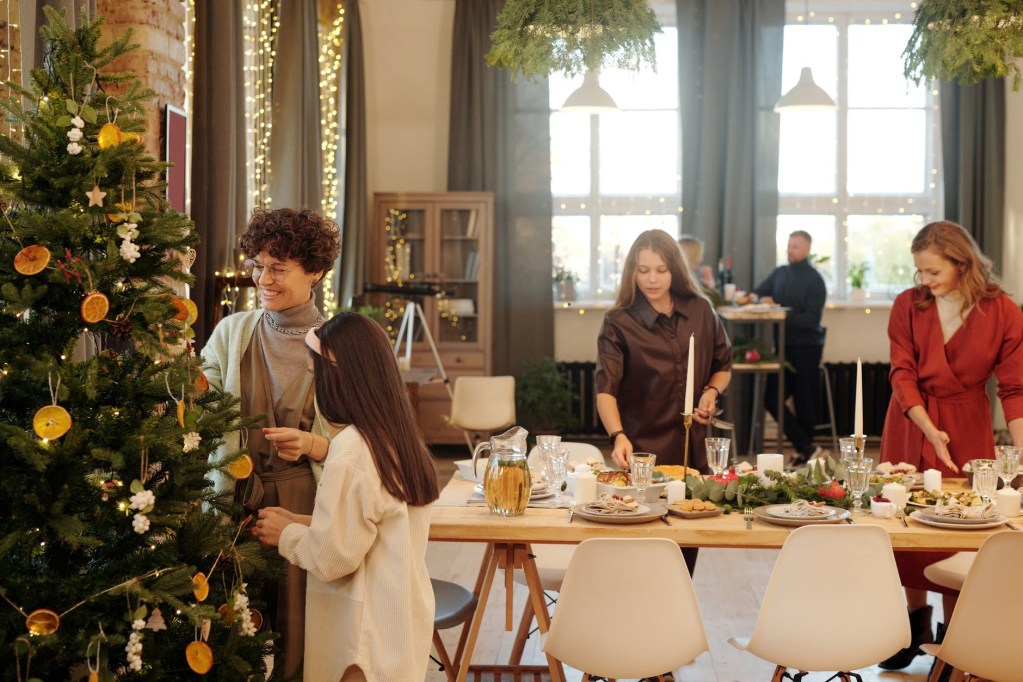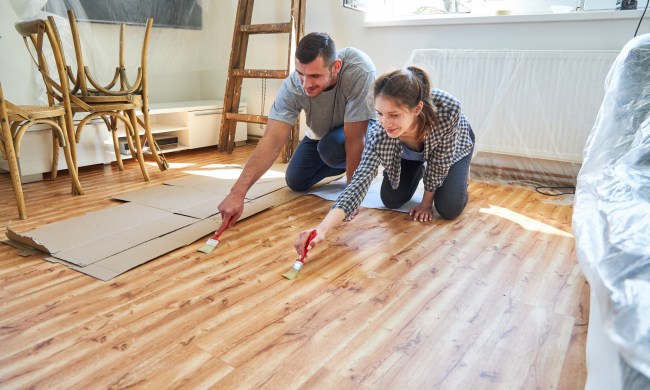Recently, the holidays haven’t been what they used to be. Between Zoom Thanksgivings and limited Christmas and Hanukkah celebrations, the COVID-19 pandemic upended many family traditions. However, with vaccines widely available, many families are planning to gather for the holidays once again. If you’re thinking about hosting a Christmas celebration, keep these things in mind to protect yourself, your family, and any guests from COVID-19.

Choose a venue and guest list carefully
If possible, host your Christmas gathering outdoors. If that isn’t a possibility, ensure the indoor space is well ventilated and large enough that everyone has ample personal space.
To err on the side of caution, limit your contact to people who are fully vaccinated. According to the Centers for Disease Control and Prevention, this means it’s been at least two weeks since they received the second dose of vaccine in a two-dose series, such as Pfizer or Moderna, or two weeks after one shot of a single-dose vaccine, such as Johnson & Johnson.
Get vaccinated
If you haven’t been vaccinated yet, get your shot before you gather with loved ones for Christmas. Vaccinating yourself can protect yourself but also members of your family who haven’t gotten vaccinated yet or who are ineligible. Being vaccinated is particularly important if anyone who will attend a Christmas gathering has a weakened immune system, as a vaccinated gathering reduces their risk of becoming infected.
Wear masks
If you will be gathering in an indoor public place, take precautions to reduce the risk of COVID-19 transmission and wear masks, whether you’re vaccinated or not. An individual with a weakened immune system can still be vulnerable, even if they have been fully vaccinated.
If an unvaccinated person will be attending a private gathering, implement a mask mandate there as well. If everyone at the private event is vaccinated, feel free to allow people to roam without masks if they’re comfortable. Again, be sure to stress social distancing and keep the space well-ventilated.
Keep in mind that a mask should fit snugly and cover the nose and mouth. Children under the age of two should not wear a mask. Those who are two to 12 years old should wear a mask whenever they are in public places or around people who are not members of their household.
Consider other safety measures
If people will be coming from regions with different vaccination rates and different levels of COVID-19 transmission, discuss taking extra precautions. For example, it may be wise to have everyone get tested before coming to Christmas dinner or quarantine for 10 days before arriving.
Determine if it’s safe for your relatives to travel
The CDC recommends that people not travel unless they have been fully vaccinated. The CDC also states that individuals who have symptoms of COVID-19, have recently tested positive, or have been exposed to an individual with the coronavirus should not travel either.
This extends to families as well. Families shouldn’t travel for Christmas if any individual has symptoms of COVID-19 (even if that person has been fully vaccinated or has previously recovered from the coronavirus) or if anyone has been diagnosed with COVID-19, is suspected to have it, or has been around a person with a diagnosed or suspected case of COVID-19 in the past two weeks. It doesn’t matter if the individual in question has symptoms or not.
Your guests should be careful when traveling
Sitting near others for several hours on a flight increases the risk of exposure to COVID-19, so if your relatives can avoid flying and travel by car instead, that’s a safer option. If they have to fly, they should take a direct flight or schedule their trip with the fewest stops or layovers possible.
People who are flying or using other forms of public transportation are required to wear a mask while traveling and while indoors, regardless of their vaccination status. However, people are allowed to remove their masks temporarily to eat or drink, so encourage traveling guests to still practice social distancing and frequently wash their hands or use hand sanitizer.
Since COVID-19 rates vary widely across the country, local recommendations and requirements regarding masks and social distancing may be different from state to state, and those policies may change between now and Christmas. Remind your guests to always follow the most strict guidelines. It’s better to be safe than sorry.
Remain vigilant
After Christmas, you and your guests should be on the lookout for any signs of a possible COVID-19 infection. Anyone who is concerned should get tested, and individuals who have not been fully vaccinated should self-isolate after traveling.
If you or a member of your family has symptoms of COVID-19 or comes into close contact with someone who has the coronavirus in the days or weeks leading up to Christmas, request that the entire family gets tested before the event. If you or a member of your immediate family gets sick, don’t host Christmas at your house. Your relatives may be disappointed, but that will be better than having one or more of your loved ones become sick.





